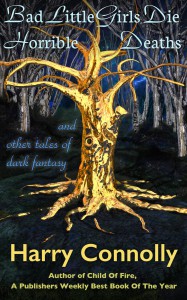A while ago, I tweeted this:
I joke a lot on Twitter, but that’s an actual thing I do to motivate me to get out of bed: I imagine the burning regret I will feel for every minute of my wasted life, because there have been a lot of them.
For me, a lot of the work I’ve done to make myself a better writer has been about increasing my productivity. When I first started out, I could barely get through a few hundred words a day. Finishing anything took forever, and everything I finished was mostly bullshit, and it was all so incredibly hard.
It took me a while to realize why I couldn’t get anything done: I’m easily distracted. Looking out the window, checking the internet, oooh that book looks interesting… all of it stole my time and attention away.
Then there’s the daydreaming, and I don’t mean about my characters or what they’re feeling. I’m talking about stupid shit like wondering if I could hit one of the rats running through the tree outside with an arrow, or what I would say to encourage JRR Tolkien if I could time travel back to the time he was struggling with Fellowship…. Really useless, stupid shit.
But I learned that working slowly was hurting me. Too many word echoes. Too many continuity errors. Poor pacing. I became a much better writer when I taught myself to speed up. I’m still not all that fast, but I’m better than I was.
The thing is, I suspect I’ve hit my personal upper limit.
Recently, I challenged myself to accomplish 10k words a week, with the added incentive that I could take days off, guilt-free, if I hit goal early. Why not? I’d certainly managed 2k or 2.5K on dedicated writing days. If I could manage five days of two thousand words each, I could take two whole days off and feel fine about it.
And it worked. For one week. Then I had to stop because I realized I was just typing out weirdly detailed extraneous bullshit about every minute detail of whatever behavior was happening in my mind’s eye. Everything was draggy and dull and bloated. So I stopped, tossed aside my dumb new plan, and took a couple of days to do nothing.
Check out Chuck Wendig’s post here about his productivity. Chuck writes quickly, finishing a few books a year. His stuff is popular (unless you love Mandalorians more than you probably should) and he gets critical raves, too. But, as he says in his post, this is what works for him. As much as I would like to be that prolific, it just ain’t gonna happen. And there’s nothing wrong with that.
(One place I would disagree with Chuck is this statement: “Fourth and finally, and I’m mighty sorry to report this, but a full-time writing career is not easily maintained by writing slowly.” I’d suggest a writing career isn’t easily maintained in general, and there are plenty of authors doing very well releasing books slowly. GRRM, Susanna Clarke, Pat Rothfuss, and Scott Lynch each have probably sold more copies of their latest than I will sell in a lifetime, but it has nothing to do with writing books quickly)
And this is why (to finally get around to the point of this post) I would warn people against gamifying your writing output. Yeah, I just spent a couple hundred words talking about increasing productivity and finding what works for you, but turning your process into a game, with points and levels, strikes me as leaning way too hard on productivity.
Because increasing productivity can be harmful to our work and our legacy, if we’re lucky enough to have one. It might be pleasant to award ourselves points for submitting stories, but if the stories don’t sell, then what good is it? Better to award points for actually selling work to a publisher, which supposedly writers can’t control, but if the work is solid and we’re putting them into the hands of buyers, we’ll eventually hit the mark.
And that’s why I cut off a productivity experiment. It was turning my fast-paced thriller into yet another bloated fantasy, and that sucks. Yeah, it would be great to write four books a year that were critical and popular darlings. It would be great to write a book every four years that readers turned into instant best-sellers. It would, in fact, be great to revive my moribund writing career so that I could maybe hit the midlist someday.
But then I read something like this and I’m reminded that I simply need to keep doing what I do, for the reasons I do it. I need to keep pushing myself toward better, more personal, more original stories, and productivity is secondary.
Like what you just read? Please share!
 The Sins of the Fathers by Lawrence Block
The Sins of the Fathers by Lawrence Block



